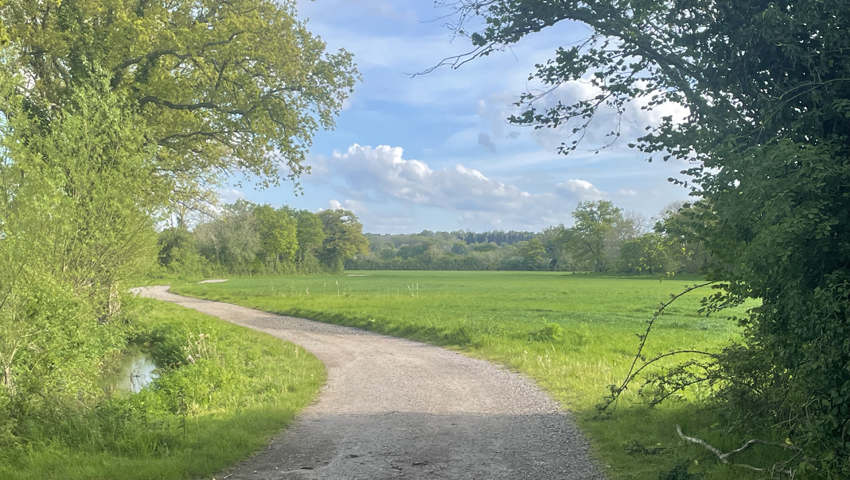The University of Reading has agreed an ambitious plan for investment in research areas for agriculture and food and has completed a £16m land purchase at Tanners Farm, Farley.
The 635-acre site includes pasture, arable land and woodland. It is around five miles south of the University of Reading’s Whiteknights campus and close to the University’s existing farming facilities at Hall Farm, near Arborfield.
The purchase of Tanners Farm, and the adoption of the Agrifood Futures Strategy, are significant events that will extend the University’s farming resources, marking a milestone in more than a century of agricultural research and education.
With the possibility of an updated Local Plan for Wokingham allocating parts of Hall Farm for a new garden village, the additional farmland will ensure there is ample space to continue the University’s world-class research, in a location that is still close to the University’s other facilities.
Professor Robert Van de Noort, Vice-Chancellor of the University of Reading, said, “The study of food and farming has been at the heart of the University’s work for more than a century. This new strategy will secure the future of agriculture at Reading for the next century to come.
“Our mission is to develop new methods and partnerships that will transform the way healthy, sustainable food is produced in Britain.
“This is another important step to raise Reading’s position among the world’s best for agricultural research. In time, this strategy and additional farmland will give our researchers the ability to find answers to critical questions of food security and sustainability. It will provide our students with hands-on experience as they train to become our future food growers and the stewards of the countryside.”
The funds for the purchase come from the University’s long-term capital investment funds. The University’s overall investment asset capital will remain broadly unchanged.
The new farm is an addition to the University’s existing agricultural facilities around Reading, which includes mixed farmland and facilities in Arborfield, Shinfield and Sonning.
Tanners Farm currently includes arable land where milling wheat, feed wheat and barley is grown.
The Agrifood Futures Strategy looks to position Reading to address some of the most important and complex challenges facing the global food system of 2050. It aims to align the University’s research with a vision for everyone globally to be able to consume a sufficient, healthy, sustainable and affordable diet that leaves the lightest possible footprint on the planet.
The strategy identifies three interlinked priority research areas, focusing on transformation to a resilient and fair food system; environmentally friendly farming systems; and developing healthy and sustainable foods.
Tanners Farm has been carefully managed, with schemes to encourage wildlife and protect the countryside. The University of Reading will initially lease the land to its existing users, continuing to support biodiversity schemes.
Professor Simon Mortimer, Head of the University of Reading’s School of Agriculture, Policy and Development, said, “This is an exciting development for the University’s ambitions to invest in the future of food and farming research and education.
“The University’s purchase of Tanners Farm will give us the opportunity to research and demonstrate solutions to some of the most pressing problems facing Britain and the world: how to keep feeding a growing population from finite resources, despite a changing climate, while reducing the impact of farming on the environment.”
